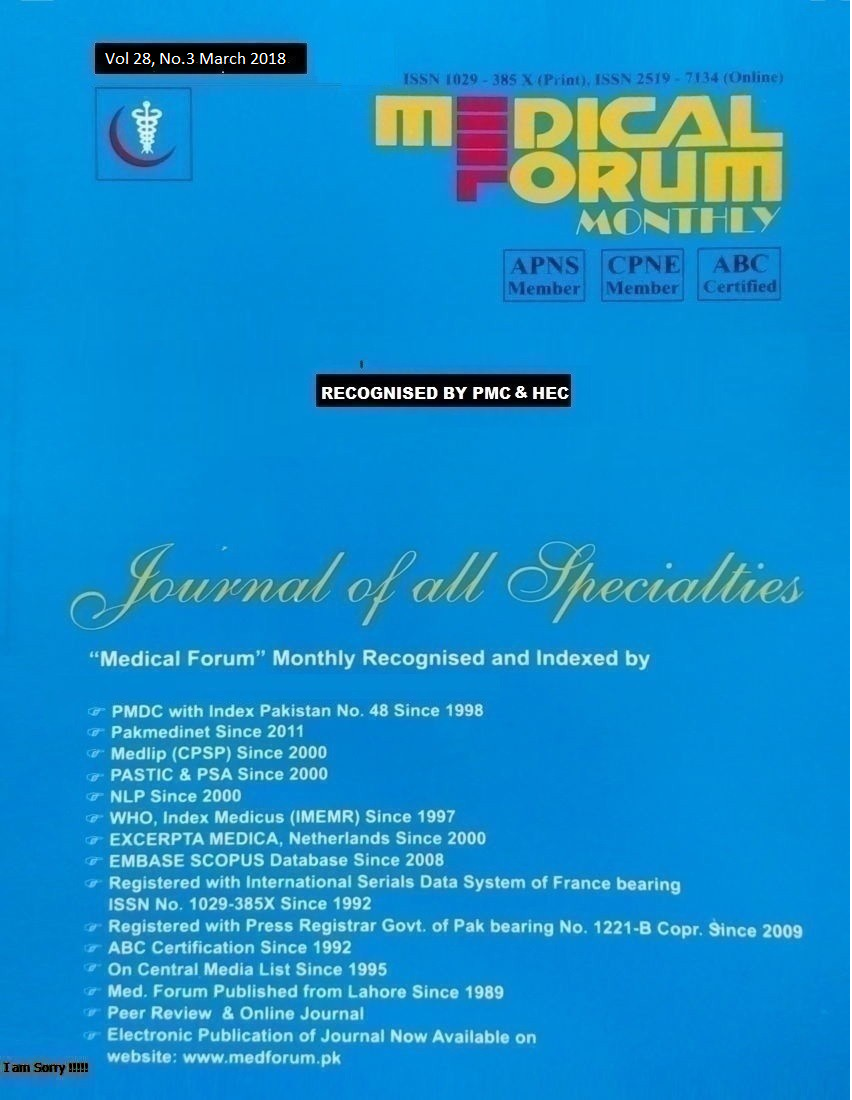
37. The Effect of Aspirin on Mortality in Tuberculous Meningitis
Muhammad Amin1, Malik Muhammad Naeem1 and Arif Raza2
ABSTRACT
Objective: To evaluate the effect of aspirin on mortality occurring within 2 months of starting treatment in tuberculous meningitis (TBM) stage III patients in patients 1-15 years of age.
Study design: A randomized open label placebo controlled trial
Place and Duration of study: The study was conducted at Pediatric unit II B.V.H. from March 2015 to September 2015.
Materials and Methods: A total of 162 patients of 1-15 years of age with TBM stage III were included in the study. Patients were divided in Group A (Aspirin group having 81 patients) and Group B (Placebo group having 81 patients). Outcome was noted in terms of mortality in both groups. All patients were treated with 4 antitubercular drug RHZE regimen (rifampicin 15mg/kg, isoniazid 10mg/kg, pyrazinamide 25mg/kg and ethambutol 15mg/kg) per oral daily for 2 months followed by RH (rifampicin 15mg/kg, isoniazid 10mg/kg) for 10months along with corticosteroid (predisolone 1-2mg/kg) per oral daily for 4 weeks and tapered in next 4 weeks. Oral aspirin was given to only group A patient at 60mg/kg per day divided 12 hourly starting with the first dose of antitubercular therapy.
Results: Out of a total of 162 children, there were 79 (48.8%) male and 83 (51.2%) female. Majority of the children, 106 (65.4%) were from 6 to 10 years of age. Miliary TB was found in 31 (19.1%) children. Presence of severe wasting was found amongst 40 (24.7%). Overall mortality was noted in 43 (26.5%) children. When both groups were divided, all the variable were found not to be statistically significant (p value > 0.05).
Conclusion: In children with TBM stage III, aspirin resulted in reduction in mortality but did not achieve statistically significance
Key Words: Aspirin, Mortality, Tuberculous Meningitis
Citation of article: Amin M, Naeem MM, Raza A. The Effect of Aspirin on Mortality in Tuberculous Meningitis. Med Forum 2017;28(3):149-152.
